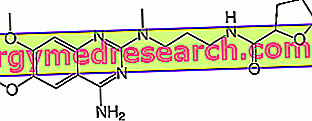See also: maltodextrin
Dextrins are a group of carbohydrates with a medium-low molecular weight, obtained from starch by acid, enzymatic or thermal hydrolysis. They are dextroginous and soluble in water, but not in alcohol.

In the human body, the digestion of dextrins is entrusted to a group of debranching enzymes, called dextrinases or α-1, 6 glycosidases, present in epithelial cells of the small intestine.
The dextrins are more easily digested than starch and are more easily measured the shorter the glucose molecule chain that constitutes them. For this reason, the bread crust, rich in dextrins formed by heating the starch, is more digestible than the crumb. In addition to being digested more easily, dextrins consisting of a few glucose units are more soluble in water; on the other hand, there are some dextrins, called resistant, indigestible for humans and used in the production of certain fiber supplements.
In addition to their molecular size, dextrins differ from each other in the type of starch from which they derive and in the process from which they were formed. In the industrial field they are used as a glue for printing fabrics, as a thickener in the food industry, as an ingredient in dietary products (especially for infants and for weaning) and as a granulating product in pharmaceuticals. As anticipated they are produced starting from starch, which can be rice, corn, potato (starch) or wheat. In the latter case, they could contain very small traces of gluten and as such cause some problems for those suffering from celiac disease; however, this is a rather remote possibility as dextrins are a highly transformed product, in which we find only small traces of amino acids.



